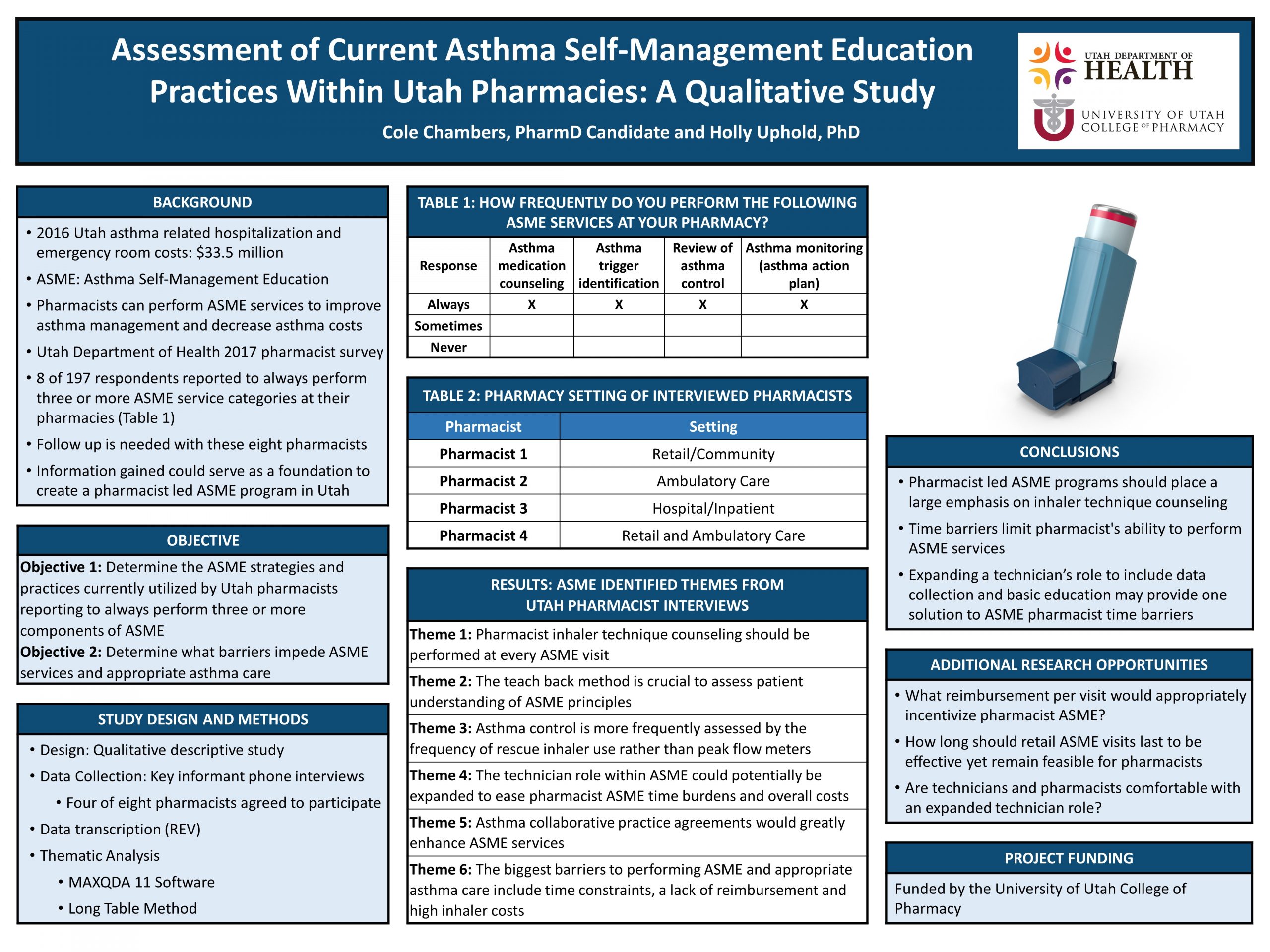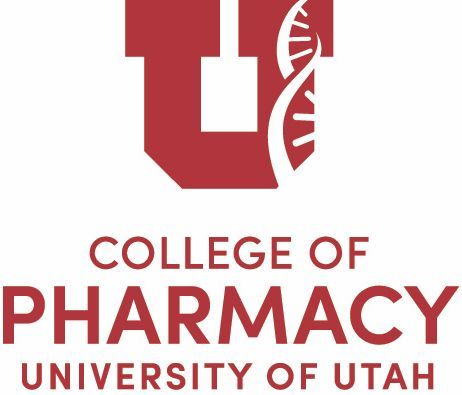Assessment of Current Asthma Self-Management Education Practices Within Utah Pharmacies: A Qualitative Study

Purpose: Asthma self-management education (ASME) is a fundamental component of asthma management that improves asthma outcomes and generates cost savings related to a reduction in unnecessary health care use. Pharmacists can play a key role in providing ASME services and improving asthma outcomes for their patients. Key informant interviews were conducted with pharmacists performing ASME services within Utah pharmacies. This allowed us to better understand what ASME practices are currently used within the state. These findings will be used to further evaluate and improve Utah ASME strategies in addition to providing a foundation for a future pharmacist-led ASME program.
Methods: Key informant interviews were performed with eight Utah pharmacists who reported to regularly provide ASME services. Interview questions focused on ASME methods, reimbursement incentives and barriers. Interview audio was transcribed and then analyzed thematically using a qualitative descriptive approach.
Results: Five common themes were identified as critical components of ASME practices, including: the importance of inhaler counseling at every visit, the importance of the teach back method to assess patient understanding, widespread pharmacist use of rescue inhaler usage to assess asthma control, the importance of collaborative practice agreements within ASME, and the potential use and expanded role of pharmacy technicians within ASME. Barriers to ASME services included time, lack of reimbursement, and high inhaler costs.
Conclusion: This study identified several key strategies for pharmacists to perform effective and feasible ASME. Future ASME programs should focus on incorporating components of inhaler technique counseling while maximizing the role of pharmacy technicians to overcome ASME time barriers.
Published in College of Pharmacy, Virtual Poster Session Spring 2020
I don’t have any questions Cole but I do want to say thank you for your work on this project. We certainly look forward to using the the information at the Utah Department of Health Asthma Program to continue improving guidelines-based care for those with asthma.
Thank you Nichole!
Hi Cole, great job on your poster! Everything is presented very clearly and it is easy to read.
Can you elaborate on why you selected a sample of pharmacists that reported always performing 3/4 ASME services? I wonder if these pharmacists perspectives on barriers to providing the ASME service (objective 2) may differ from pharmacists not regularly performing these services.
Do you have any ideas about how reimbursement for time spent on ASME could work? That seems like it could be a tough barrier to change.
It’s cool to see a follow up to last year’s project as well. Nice work!